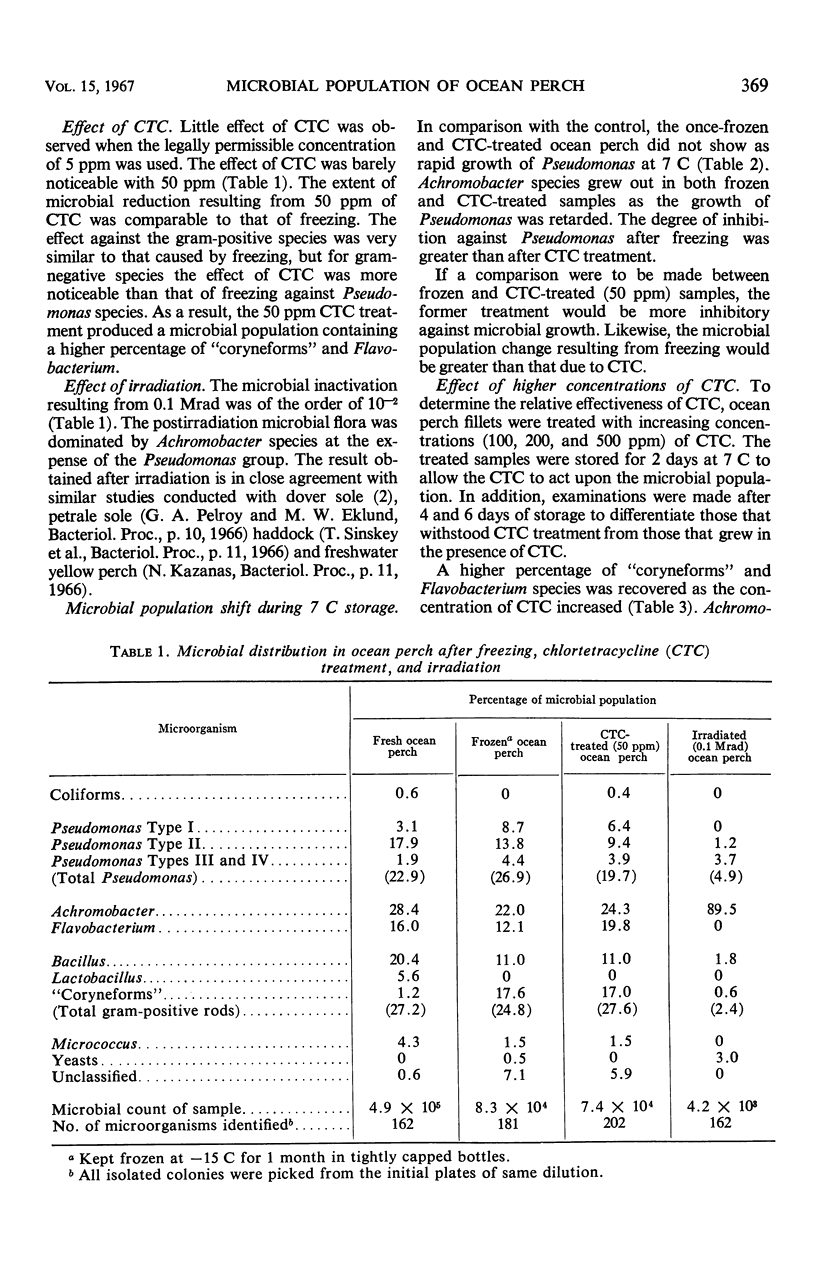Abstract
The microbial populations in chlortetracycline (CTC)-treated (50, 100, 200, and 500 ppm), frozen (-15 C), and irradiated (0.1 Mrad) ocean perch (Sebastodes alutus) were compared. The control sample spoiled at 7 C, primarily because of the growth of Pseudomonas. Irradiation changed this to Achromobacter-dominated spoilage. Freezing or CTC treatment altered the spoilage pattern very little. CTC was particularly effective against ultraviolet fluorescent Pseudomonas species at the higher concentrations. Freezing and CTC were not effective against “coryneforms.”
Full text
PDF




Selected References
These references are in PubMed. This may not be the complete list of references from this article.
- LEE J. S., SHIFLETT M. A., SINNHUBER R. O. RADIATION PASTEURIZATION OF SEAFOOD. I. THE COMBINED EFFECT OF SODIUM BENZOATE AND IRRADIATION FOR RETARDING MICROBIAL GROWTH IN DOVER SOLE (MICROSTOMUS PACIFICUS). Int J Appl Radiat Isot. 1965 Apr;16:221–226. doi: 10.1016/0020-708x(65)90175-4. [DOI] [PubMed] [Google Scholar]
- Shiflett M. A., Lee J. S., Sinnhuber R. O. Microbial flora of irradiated Dungeness crabmeat and Pacific oysters. Appl Microbiol. 1966 May;14(3):411–415. doi: 10.1128/am.14.3.411-415.1966. [DOI] [PMC free article] [PubMed] [Google Scholar]


